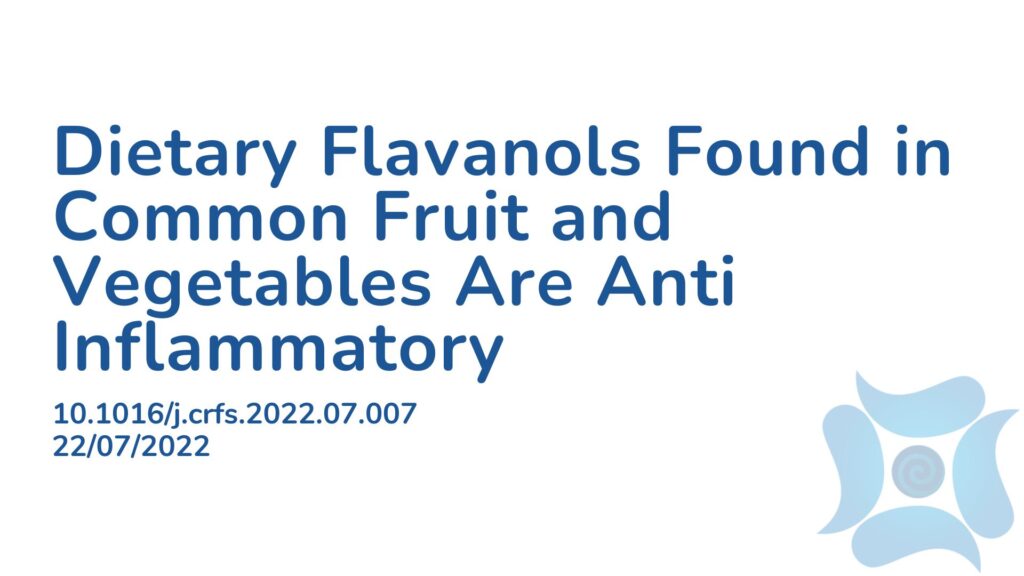Summary: Dietary Flavonols are a Type of Phytochemicals that have been shown in research to be extremely beneficial to human health due to being antioxidants, antimicrobials, anti cancerous, anti-inflammatory and effective at reducing blood sugar levels. Fis, Que and Myr are three different kinds of flavanols found in a wide variety of fruit and vegetables. Fis and Myr are commonly found in strawberries, onion and grape varieties. Que is a major flavonoid of many fruits and vegetables and especially high in mango, apple and many herbal teas. In this paper, the authors looked at these three flavanols (Fis, Que, and Myr) to examine whether they have anti-inflammatory potential and to understand the way in which the anti-inflammatory effects are exhibited. This research proved that the flavonols Fis, Que and Myr exerted anti-inflammatory effects and also have the potential for the prevention or treatment of inflammation. Given that inflammation is a leading factor in many modern disease states, it is undeniable that the role of an antioxidant rich diet in the form of flavanols is critical at managing levels of inflammation.
Abstract:
Fisetin (Fis), quercetin (Que), and myricetin (Myr) are flavonols with similar structure but different number of hydroxyl groups. The present research focused on the anti-inflammatory effect of these three flavonols in lipopolysaccharide-stimulated RAW264.7 cells. The number and site of hydroxyl group in flavonols obviously affected their anti-inflammation activity. These flavonols suppressed the overproduction of nitric oxide. Fis showed the best activity with an inhibition rate of 52% at 20 μM. Moreover, the flavonols reduced the levels of ROS, TNF-α, and IL-6. The mechanistic study showed that they inhibited the activation of NF-κB and MAPK pathways by suppressing the phosphorylation of IκBα, p65, JNK, ERK, p38, MEK, and reducing the nuclear translocation of NF-κB p65. In addition, the metabolism of the flavonols was examined. The results indicated that Fis was both methylated and glucuronidated. Que and Myr were mainly transformed into methylated products. This study highlights the anti-inflammatory activity of flavonols, particularly Fis, which has the potential for the prevention or treatment of inflammation as an adjuvant medicine or food additive.
Article Publication Date: 22/07/2022
DOI: 10.1016/j.crfs.2022.07.007




